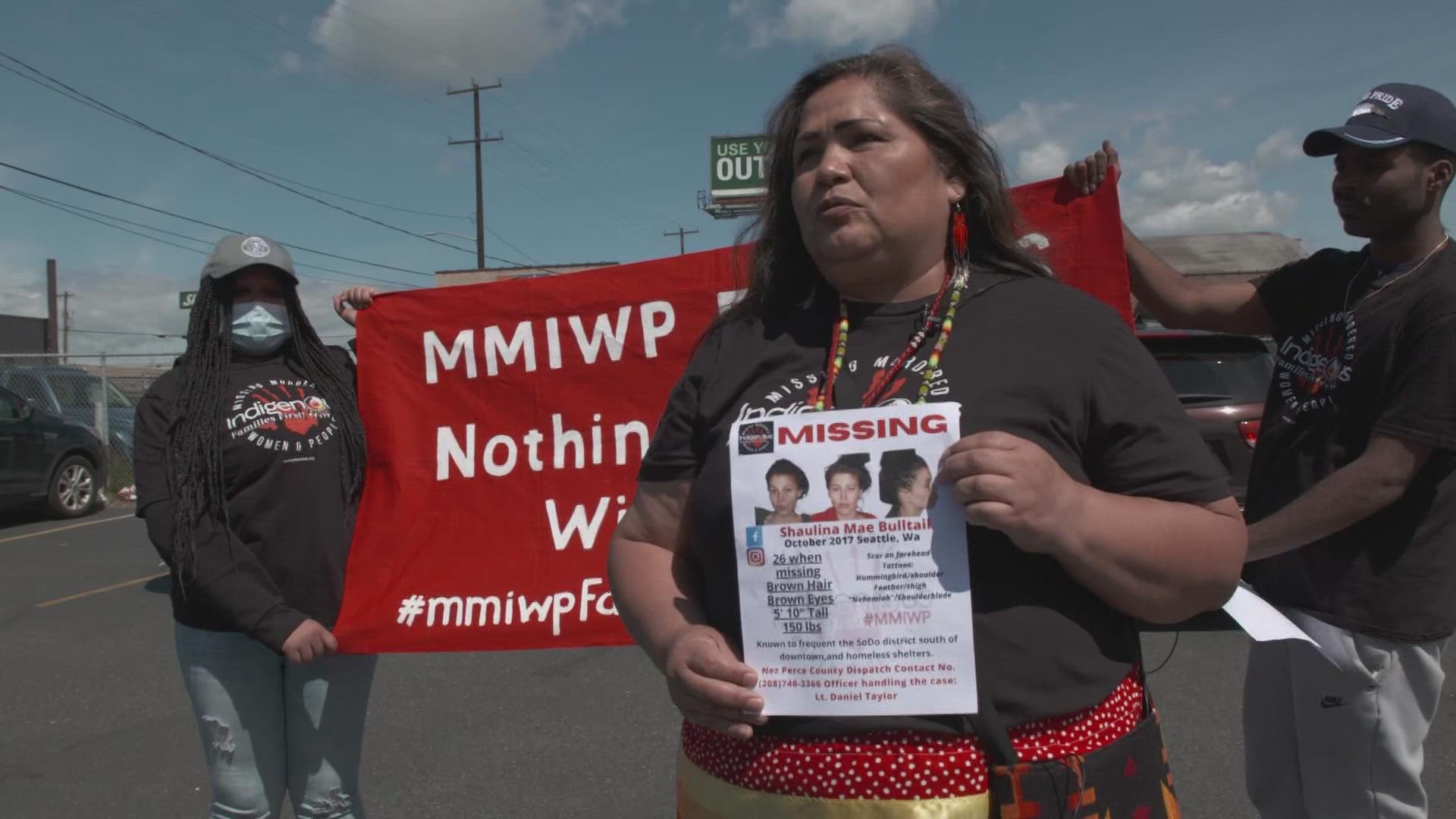SEATTLE — The Urban Indian Health Institute (UIHI) released a comprehensive report outlining racial misclassifications in the Seattle Police Department's (SPD) data reporting, which they said has hidden the "full scope of the crisis" for missing and murder indigenous people in the city.
The UIHI found 506 cases of missing and murdered indigenous women and girls across 71 cities in the United States in a 2018 report, but 153 of the cases were not entered in law enforcement databases at all.
The disparities highlight a "data crisis" in databases, the UIHI said in a report released Thursday, which aims to strengthen American Indian and Alaska Native data within SPD.
Seattle's City Council passed Resolution 31900 on Sept. 9, 2019 to create a partnership between police and Seattle Indian Health Board's to improve data collection within the agency.
As part of the resolution, a police liaison started focusing on building relationships between SPD and native communities in the area.
"Although correctly collecting and reporting race/ethnicity data does not stop the violence against Native people, it can help Native communities, public health authorities, and law enforcement agencies understand the scope of the problem and address it more effectively," the UIHI reported.
The report outlined 13 recommendations for SPD to implement in its data collection.
- Ensure race and ethnicity are being captured accurately.
- Collect the self-identified race(s) and ethnicity of Missing and Murdered Indigenous People.
- Ensure the collection and analysis of multiple race and ethnicity categories.
- Collect tribal affiliation, when appropriate, as determined by Tribal Consultation and Urban Confer processes.
- Conduct a forensic review of MMIP cases.
- Develop a codebook that defines current data elements in plain language.
- Provide training on best practices for collecting and inputting demographic data.
- Provide training on American Indian/Alaska Native communities, the MMIP crisis, and cultural humility.
- Review existing trainings to increase and sustain compassion and empathy among SPD.
- Conduct observation of non-emergency call takers.
- Increase public awareness of the MP investigation process.
- Develop a unit manual to set communication standards between the MP Detective, reporting parties, and tribal nations (if applicable).
- Clarify investigation expectations of patrol officers and the MP Detective across SPD.

